Although Generation Alpha are still young, now is the crucial moment for brands to start preparing for and engaging with this emerging cohort. Born between 2010 and 2025, Gen Alpha is set to redefine consumer culture and become a powerful force in the marketplace. By 2029, as they transition into adulthood and enter the workforce, their spending power is projected to reach a staggering $5.5 trillion. Their unique behaviours, values, and expectations—particularly in the food and drink industry—distinguish them from previous generations.
Join Mintel as we explore the evolving relationship between Generation Alpha and food, uncover key trends that will drive innovation in the industry, and explore strategies for brands to build authentic and lasting connections with this next generation of influential consumers.
What are Gen Alpha’s Core Characteristics?
Growing up in a world of instant access and abundant choices, Gen Alpha is already influencing trends in the food industry. Shaped by an era marked by economic uncertainty, climate crises, rapid technological advances, and the COVID-19 pandemic, these global events have shaped Gen Alpha’s distinct characteristics and expectations of brands in the food sector.
- Independent and influential
While still young, Gen Alpha are growing up amid a parenting and mental health revolution, where their opinions are valued and their influence on household decisions is significant, with 63% of UK parents of four to seventeen-year-olds telling Mintel that their child has a big say in household meals. - Tech savvy and digitally native
Growing up in a digital-first world, Gen Alpha is more tech-savvy than any generation before. With eight in ten of US tweens and teens owning smartphones, they’re constantly connected. While they embrace technology, there’s a growing awareness of the importance of screen-life balance, driven by concerns about potential health risks related to excessive screen time. - Sustainably and ethically focused
Gen Alpha is growing up in a world marked by social and environmental issues. This has fostered a strong ethical consciousness, making them discerning consumers who prioritise food brands with genuine social and environmental values. As they mature, this awareness is likely to intensify. In India, almost half of parents of 4-7-year-olds believe their children can make a difference, highlighting the potential for a generation of conscious consumers.

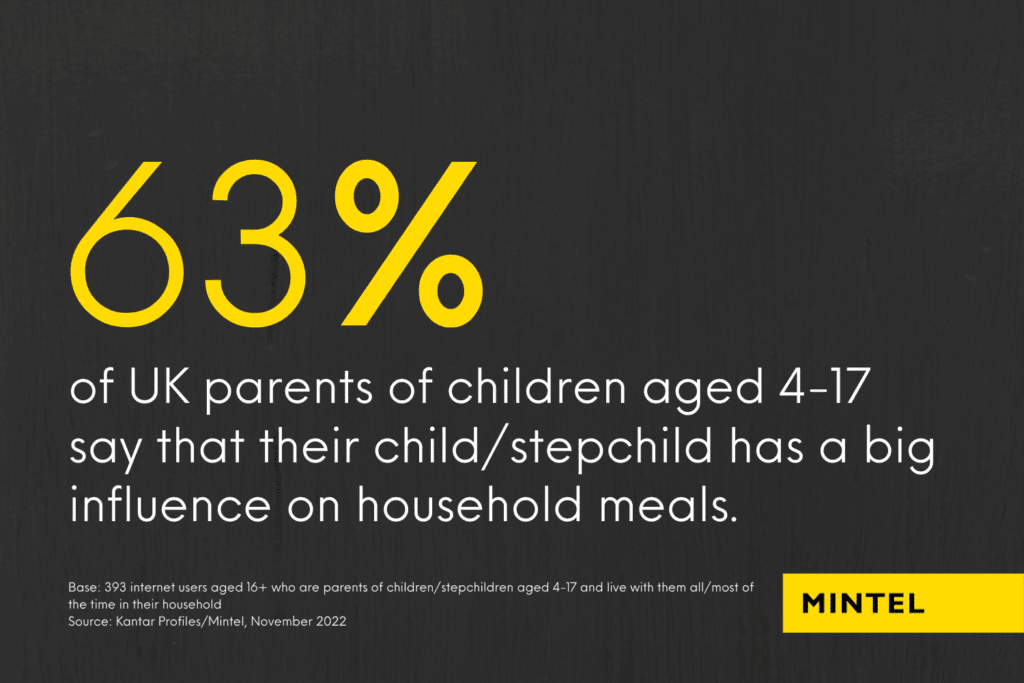
Gen Alpha Food Trends
Health and wellness-focused generation
Gen Alpha is growing up in an era of heightened health consciousness. They are the first generation to benefit from revolutions in gut health and are growing up with a focus on functional foods and drinks, enriched with vitamins, minerals and probiotics. This generation will likely have a deeper understanding of the connection between diet and overall wellbeing.
In the US, there is a growing demand from Gen Alpha’s parents for products that support immune function and digestive health, with nine in 10 parents of 4-5s interested in food and drink options that promote gut health. A similar trend is occurring in the UK, where the educational platform Belly Bugs teaches children about their microbiome in an engaging way. Belly Bugs encourages kids to explore the microbes living in their gut and teaches them to care for these microbes as if they were pets. This creative approach empowers children to take an active role in their health, fostering a lasting, positive relationship with nutrition.
One outcome of the pandemic is consumers’ uptake of vitamins, minerals and supplements (VMS). Mintel’s GNPD reveals that 28% of global children’s food launches in 2024 featured a vitamin or mineral fortification claim. As parents balance busy lifestyles and the higher cost of living, many have found it difficult to provide fresh produce for their children consistently. This has prompted parents to use VMS as a convenient nutrient top-up, with almost half of Chinese parents giving their children single-mineral supplements and seven in ten UK parents giving their children vitamins and supplements. To better reach the Gen Alpha target market, brands are blurring the lines between snacking and supplement categories, introducing candy-like formats such as Smerfy’s MultiVitamin Lollipops. These products provide a tasty and portable way to deliver nutrients, fitting seamlessly into children’s and parents’ active lives.
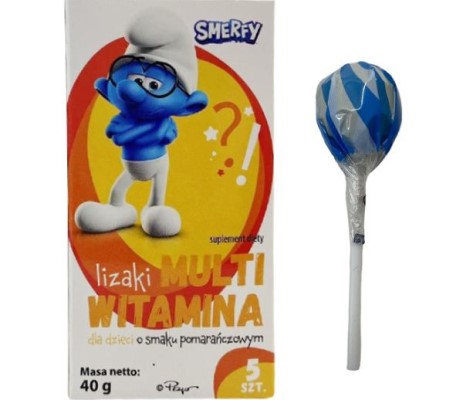

Although Gen Alpha is growing up with a heightened awareness of the connection between diet and health, global childhood obesity rates continue to rise. This complex issue is driven by various factors, including socioeconomic challenges, declining levels of physical activity, and the normalisation of ultra-processed, high-fat, sugar, and salt (HFSS) foods in children’s diets. Globally, there is noticeable progress in reducing sugar and salt in children’s foods—Mintel’s GNPD reveals that 9% of global children’s food launches in 2024 carry a “no added sugar” claim, up 5 percentage points since 2019. As parents continue to scrutinise food for its nutritional quality, brands are encouraged to innovate healthier alternatives by using natural ingredients and developing new production methods to lower sugar and salt without compromising taste. Brands also have a unique opportunity to provide educational content that supports healthier lifestyle choices and fosters good dietary habits.
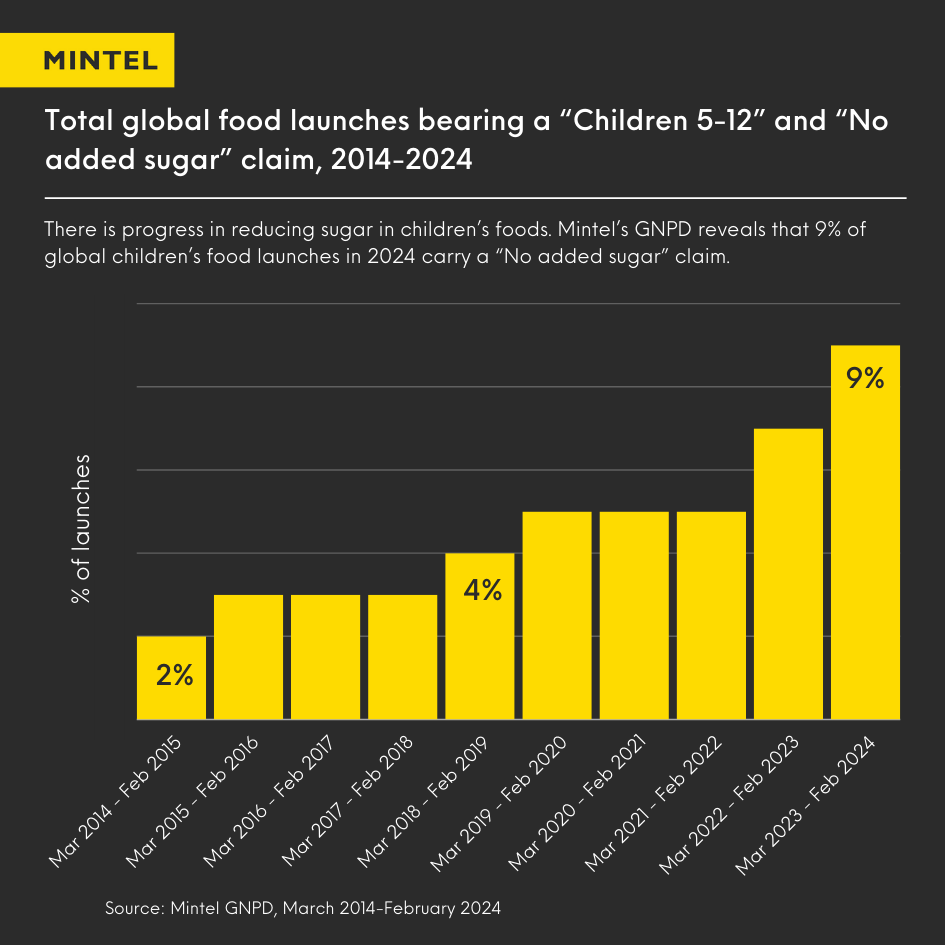

Gen Alpha’s sustainable food habits
Gen Alpha have a notable influence on their parents’ choices, with six in ten UK parents of children under 18 having tried a new product that their child(ren) has recommended. This influence can extend to sustainable food choices, enabling Gen Alpha to play a role in tackling the climate crisis. Many children are increasingly aware of sustainability issues; nearly half of UK parents of four to seventeen-year-olds say that their child is encouraged to eat fewer animal-derived products due to their sustainability concerns. Food and drink brands have a unique opportunity to align with the ethical values of this generation, and by clearly communicating and verifying their green credentials in ways that resonate with both children and teens, they can make a significant impact.
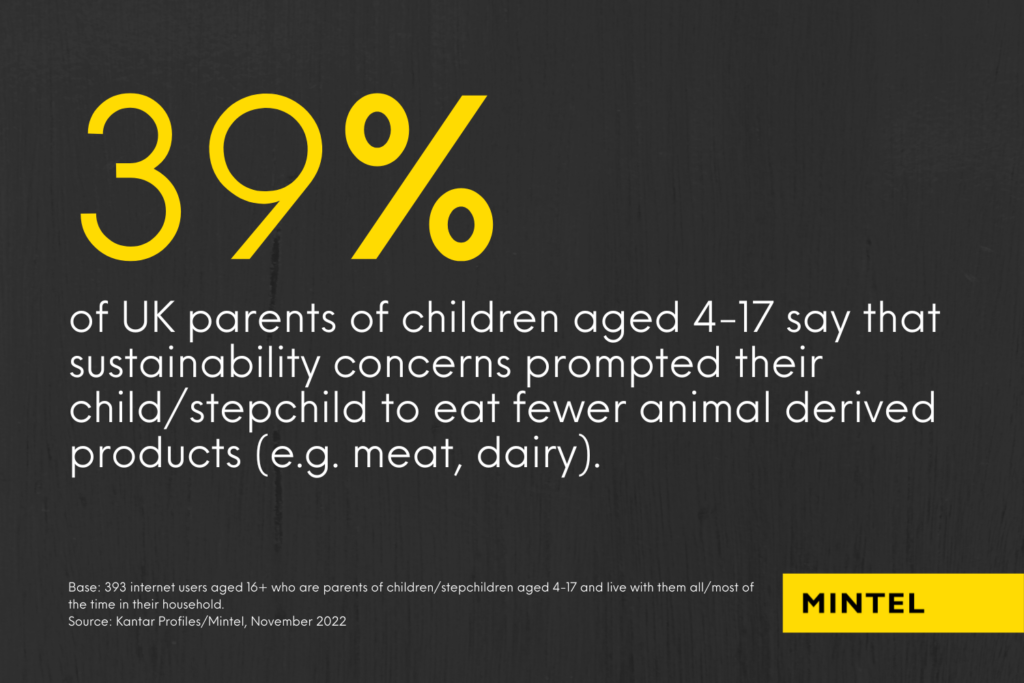
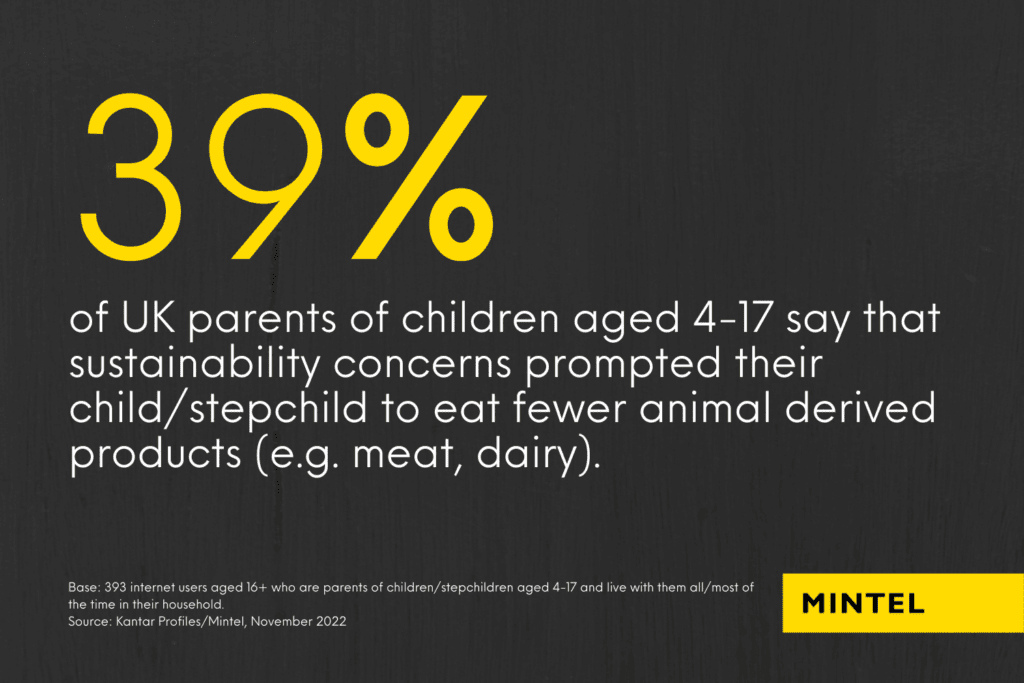
Gen Alphas will enter adulthood during a critical time for food security, with global food demand expected to rise by over 50% by 2050. As the climate crisis worsens, Alphas will be more pragmatic and open to sustainable food technologies such as genetically modified ingredients and lab-grown foods. Already, half of Germans who have five to seven-year-olds in their household would prefer a more sustainable, synthetically produced food over a less sustainable, naturally produced one. As food security challenges grow, these technologies will become increasingly appealing to Gen Alpha. Brands have a unique opportunity to educate this generation about genetically modified crops and lab-grown food through targeted marketing, highlighting clean ingredients that protect biodiversity while offering safe, abundant, and tasty solutions.
Generation Alpha are adventurous, pleasure-seeking foodies
Gen Alpha is growing up with adventurous palates, encouraged by parents who believe in exposing children to diverse cuisines early—nearly eight in ten UK parents of four- to seven-year-olds prioritise this. Influenced by a global blend of flavours, fuelled by social media, migration, and the food-delivery boom, Alphas are becoming familiar with a wide variety of tastes and culinary experiences.
This cohort is also likely to seek pleasure and escapism as a response to societal challenges. The impact of COVID-19 has deepened Gen Alpha’s appreciation of real-life experiences, and food serves as a tangible, real-world means of connection in an increasingly online world. This shift has driven growing interest in immersive dining experiences such as themed restaurants and interactive food experiences. The foodservice sector is leaning into this trend. In China, for instance, child-focused Xibei restaurants attract young consumers with themed décor, healthy options and visually engaging dishes. By creating these immersive experiences, brands can strengthen the relationship between children, their parents, and the brand itself, fostering a memorable and meaningful connection.


Globally, new product launches aimed at children aged 5-12 have declined over the past decade, largely due to tighter regulations and increased scrutiny around advertising for children’s food and drink products. However, brands should be mindful of the significant influence of a generation’s early years on lifelong brand loyalty since nostalgia plays a notable role in the customer’s purchasing journey. Despite fewer product launches, there is demand for innovative children’s food and drink. Seven in ten German parents, for example, are interested in trying new snacks for their children, highlighting a sustained appetite for fresh ideas in this market. Brands like Air Up, with its scented bottle concept, demonstrate that there’s still plenty of room for creativity in children’s food and drink. This playful approach not only engages young consumers’ natural urge to play but also aligns with parents’ openness to trying novel products for their children.
How Can Your Brand Market to Gen Alpha?
Gen Alpha, a generation raised on health consciousness and sustainability, is poised to reshape the food industry. They prioritise functional foods, sustainable sourcing, and ethical consumption. As digital natives, they seek out immersive food experiences and personalised choices. Gen Alpha is already impacting family food decisions, making them a force to be reckoned with in the future of food and drink.
Don’t miss out on the next generation of consumers. Contact a specialist today to learn how to create innovative products and marketing strategies that resonate with Gen Alpha’s unique set of values and behaviours.
Or, subscribe to Spotlight today, our free platform, providing insights, fresh perspectives and ground-breaking analysis into the markets that matter.
Want to start making data-driven decisions?
24World Media does not take any responsibility of the information you see on this page. The content this page contains is from independent third-party content provider. If you have any concerns regarding the content, please free to write us here: contact@24worldmedia.com

